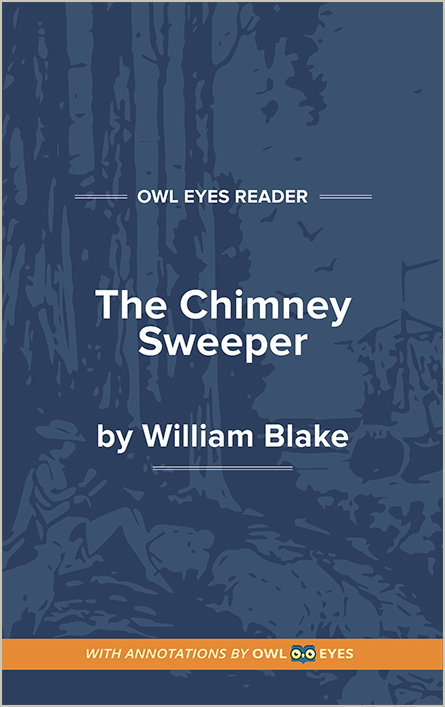- Annotated Full Text
- Literary Period: Romanticism
- Publication Date: 1789
- Flesch-Kincaid Level: 5
- Approx. Reading Time: 1 minute
The Chimney Sweeper
William Blake’s 1794 collection Songs of Innocence and of Experience explores the theme of human innocence and its eventual loss. This theme plays out in stories drawn from the Judeo-Christian tradition, particularly humanity’s fall from grace in the Garden of Eden as well as in tales of childhood and the natural world. Songs of Innocence, the collection’s first half, depicts scenes of untouched innocence, of songbirds and long spring days. One exception is “The Chimney Sweeper,” a poem which introduces the suffering of the world and thus serves as a kind of prelude to Songs of Experience. The poem explores the plight of Victorian-era London’s child laborers, many of whom were forced into work programs as infants. The toil and soot of the work become symbolic of the suffering all humans endure. In line with Blake’s enduring engagement with biblical themes, the young chimney sweepers dream of salvation. Heaven promises a return to a state of grace. Yet Blake maintains a critical view to the end. The hope of redemption does not alleviate the suffering of the child laborers, nor does it cure the corrupt system that exploits them.
- Annotated Full Text
- Literary Period: Romanticism
- Publication Date: 1789
- Flesch-Kincaid Level: 5
- Approx. Reading Time: 1 minute

